This is my favourite places. I used to live in Treptower for a few months and would go there pretty frequently.
It’s a war cemetery, marking the final resting place of more than 7000 Red Army soldiers who fell in the Battle of Berlin. More than 80 000 Soviet soldiers fell in the battle in total.
The monument is much bigger than this statue. in the middle of the park of the monument there are these gigantic stone flags, hanging to each side. Directly across from the soldier is a large, but significantly smaller, statue of a woman kneeling in respect for the soldier. Then there’s all these huge square stones depicting scenes from the war, with quotes by Stalin written in gold in Russian and German on the side.
What I love about it, in addition to the symmetry and the somewhat over the top nature of it all, is that it’s positioned exactly where two traumatic pasts meet. It is in part a sacred space; in part a painful memory. Some will criticize it for glorifying Stalin and the GDR; others have labelled it the “Tomb of the Unknown Rapist”, in reference to the not always excellent conduct of the Red Army. But despite everything—and there is a lot—one can’t help but feel an immense gratitude to the 7 000 lying there. It’s a place where history and ideas collide, and one is struck by the complexity maybe more than the beauty.
Anxiety blocked me from doing that before, but here are more pictures with the other things cleverly pointed by you, that indeed make everything even prettier
This is my favourite places. I used to live in Treptower for a few months and would go there pretty frequently.
It’s a war cemetery, marking the final resting place of more than 7000 Red Army soldiers who fell in the Battle of Berlin. More than 80 000 Soviet soldiers fell in the battle in total.
The monument is much bigger than this statue. in the middle of the park of the monument there are these gigantic stone flags, hanging to each side. Directly across from the soldier is a large, but significantly smaller, statue of a woman kneeling in respect for the soldier. Then there’s all these huge square stones depicting scenes from the war, with quotes by Stalin written in gold in Russian and German on the side.
What I love about it, in addition to the symmetry and the somewhat over the top nature of it all, is that it’s positioned exactly where two traumatic pasts meet. It is in part a sacred space; in part a painful memory. Some will criticize it for glorifying Stalin and the GDR; others have labelled it the “Tomb of the Unknown Rapist”, in reference to the not always excellent conduct of the Red Army. But despite everything—and there is a lot—one can’t help but feel an immense gratitude to the 7 000 lying there. It’s a place where history and ideas collide, and one is struck by the complexity maybe more than the beauty.
Anxiety blocked me from doing that before, but here are more pictures with the other things cleverly pointed by you, that indeed make everything even prettier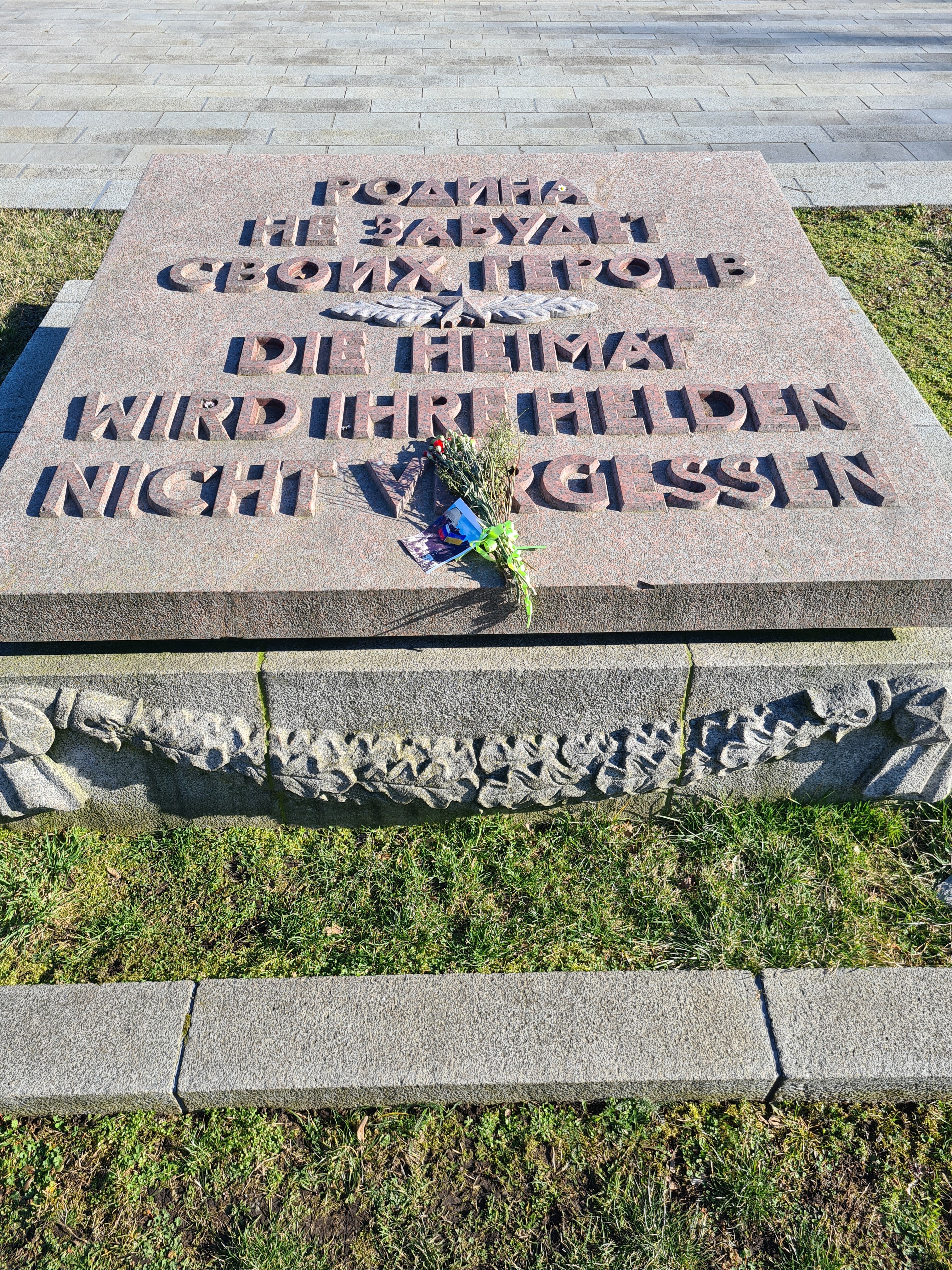
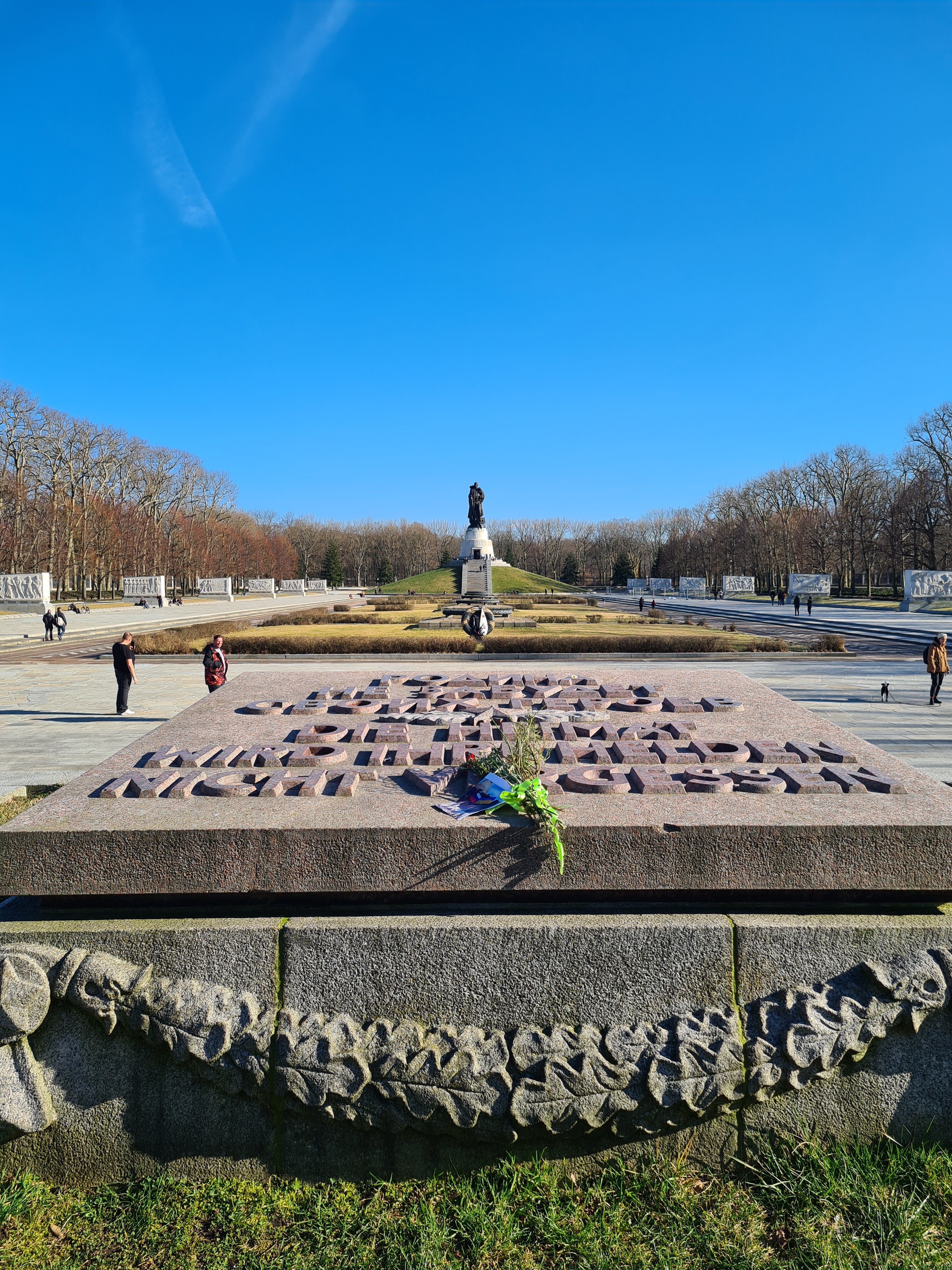
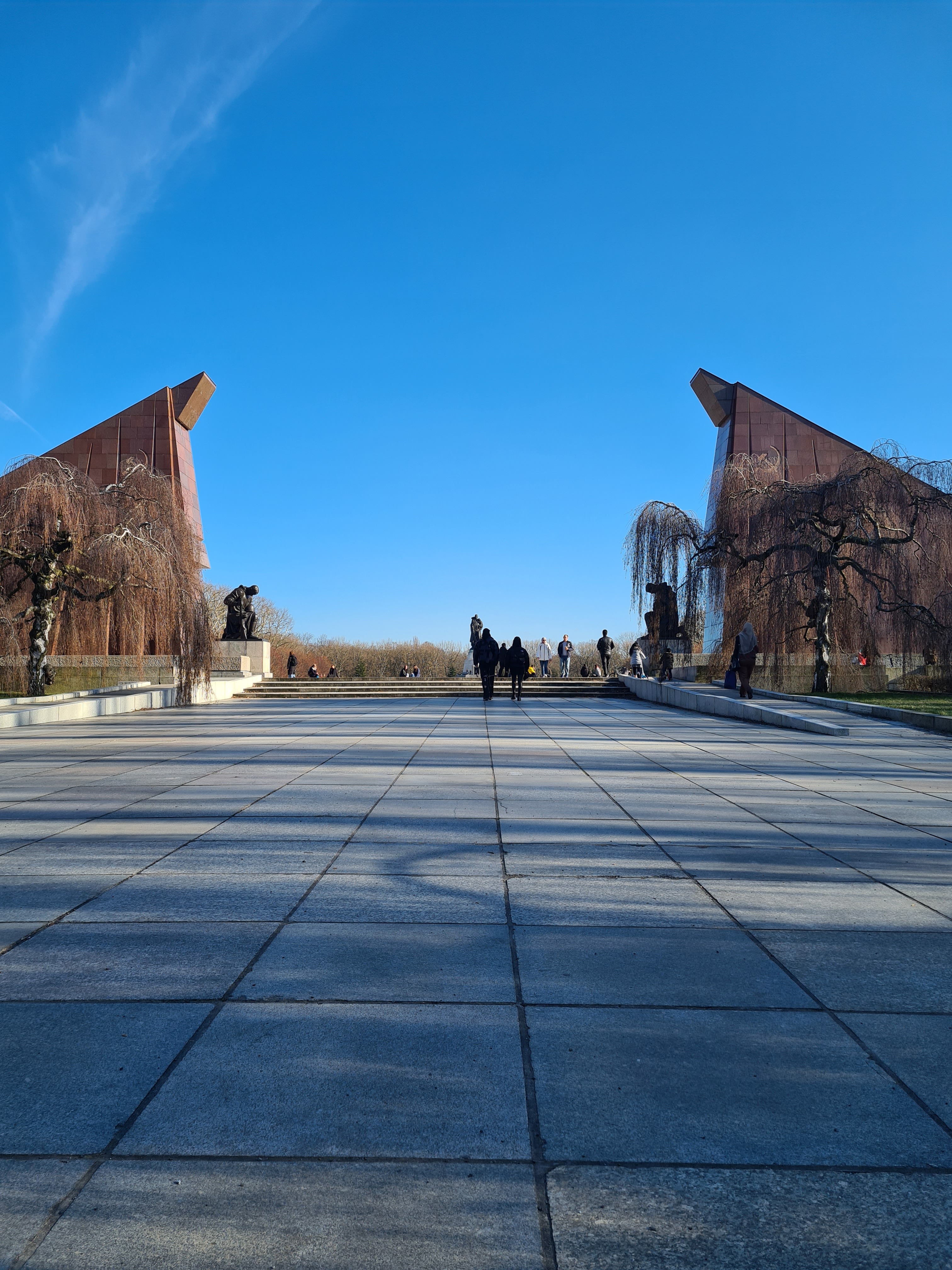
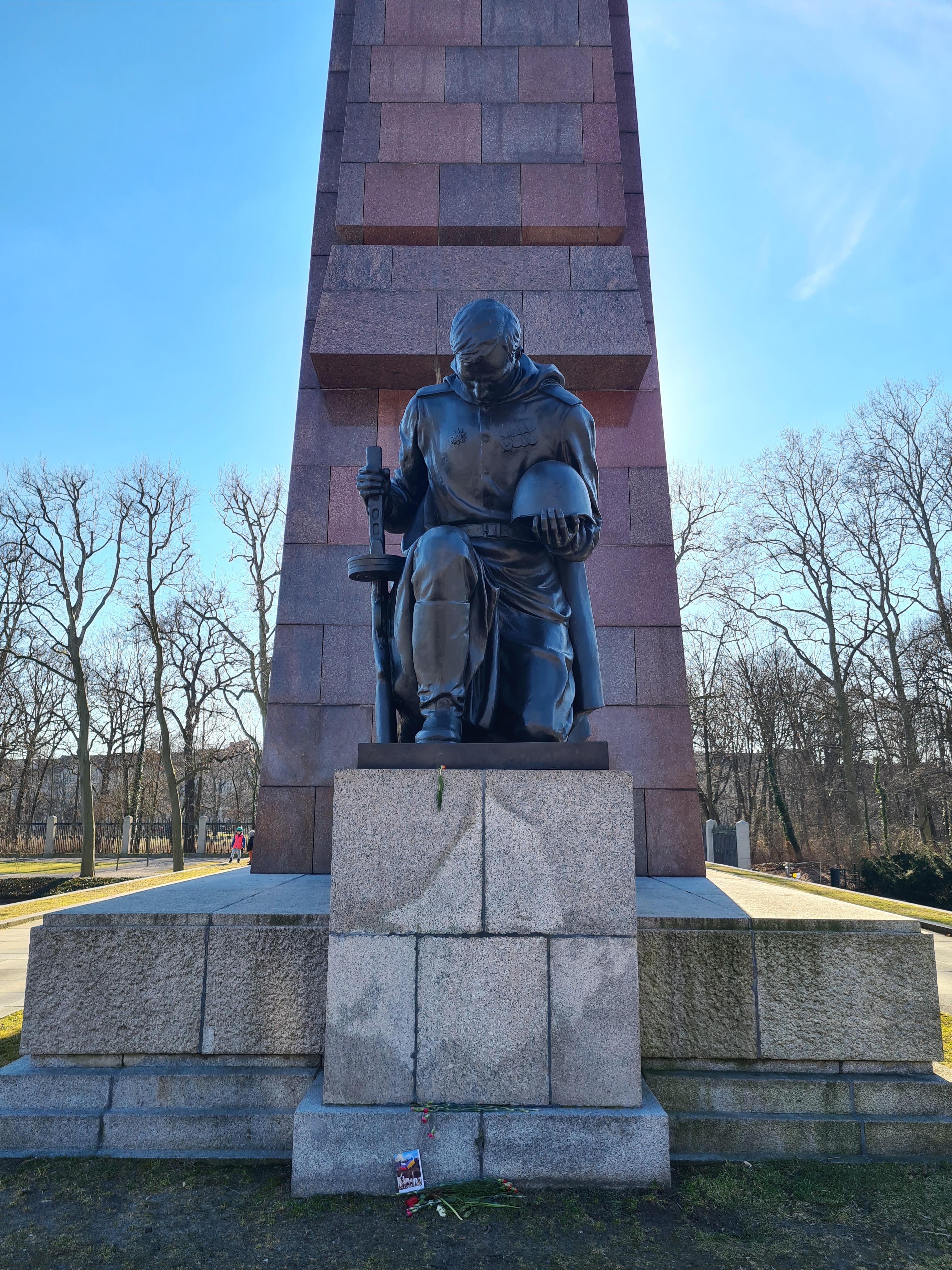
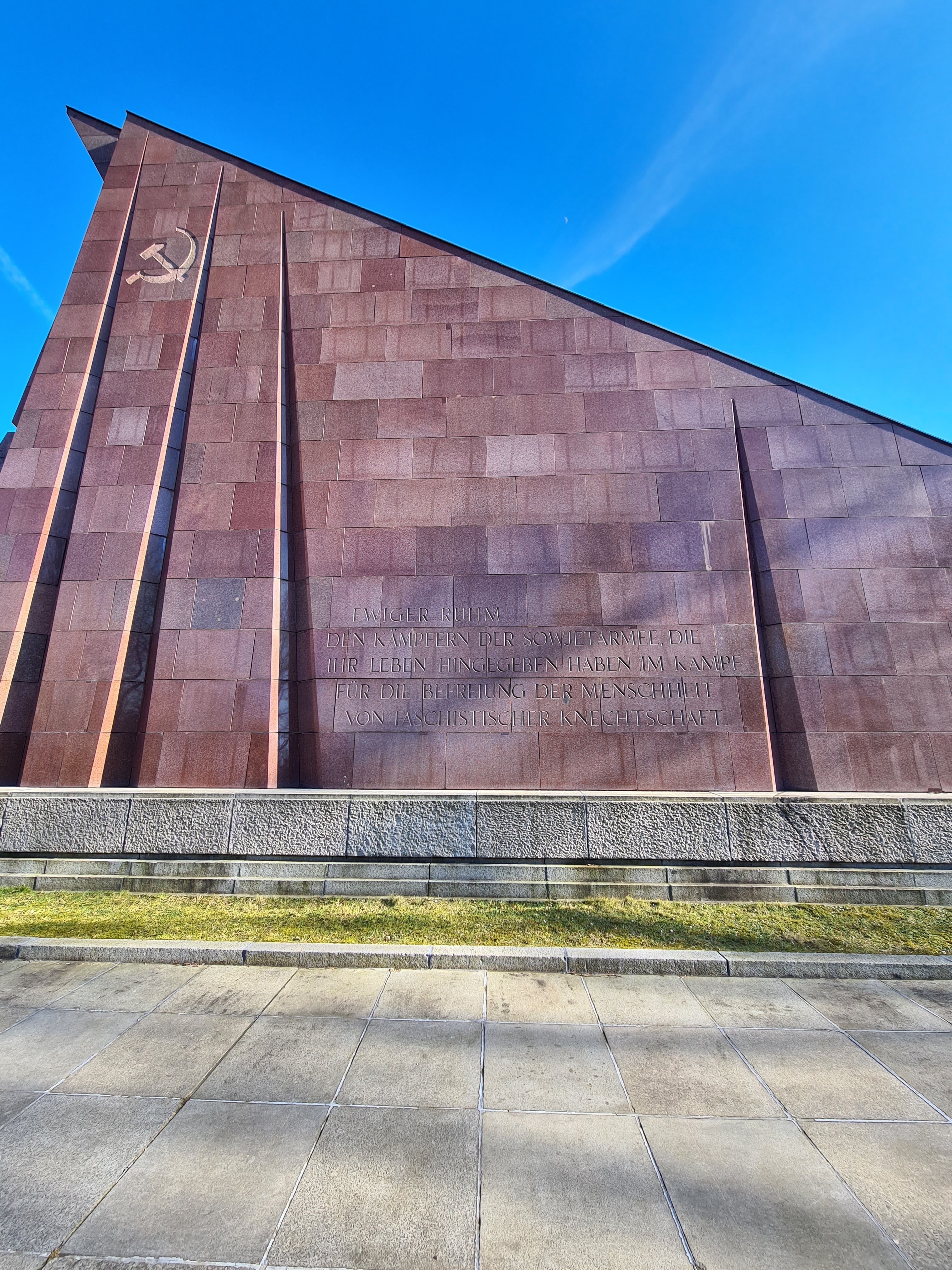
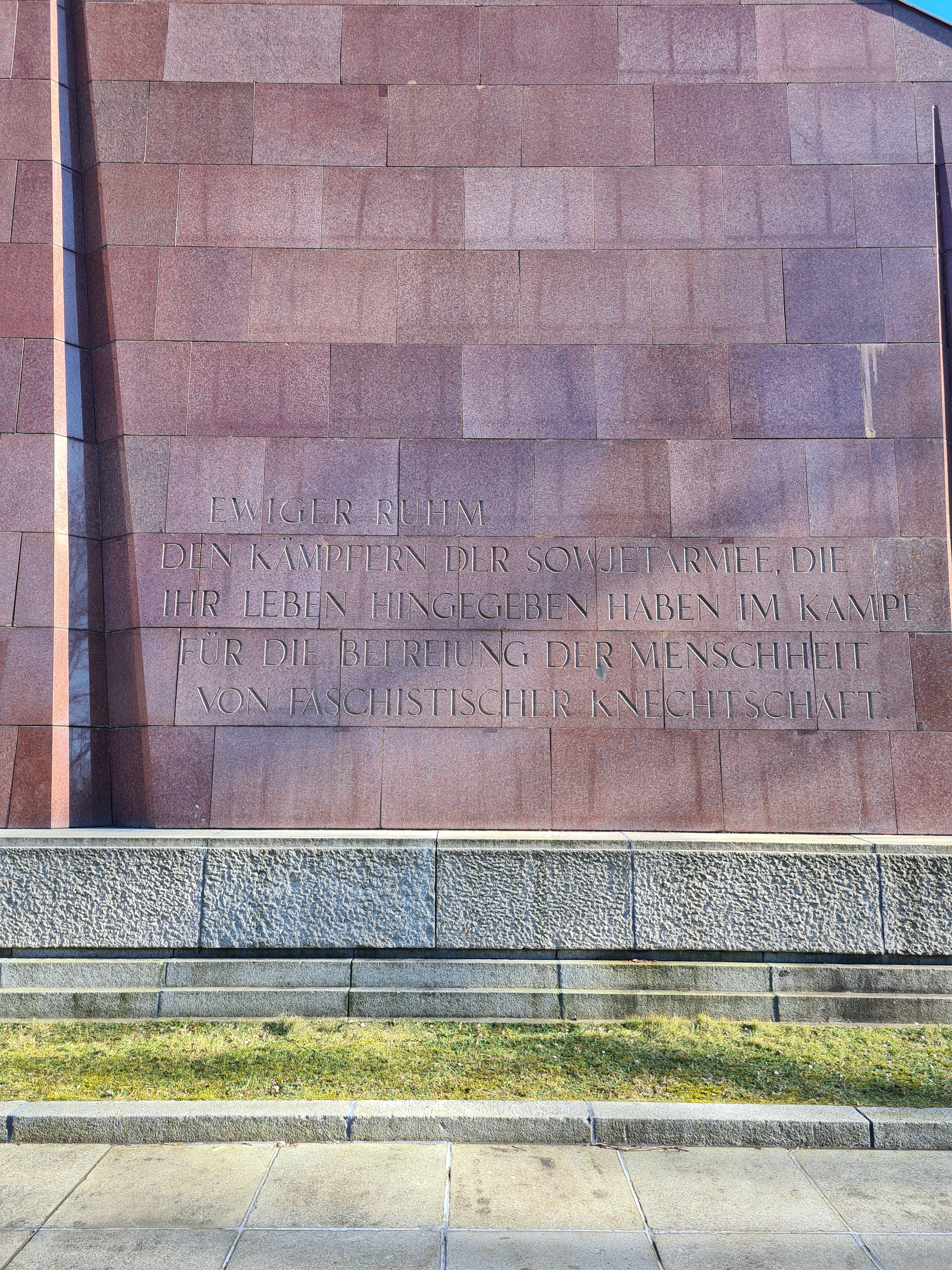
Oki, so pictures didn’t load :( hahahaha
They did! Thank you so much - I tried to Google, but all the pictures were awful. Love yours!